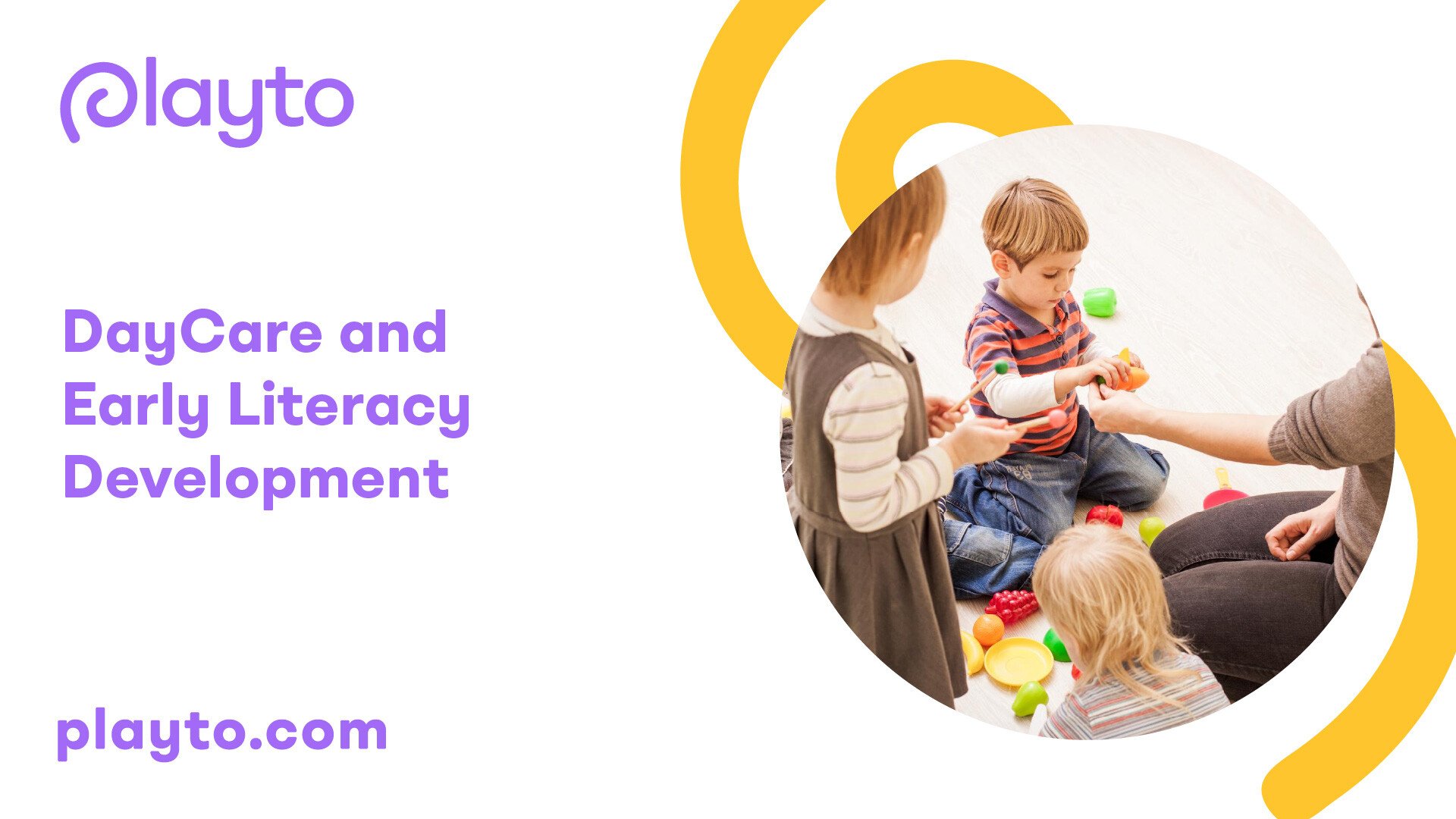
Early Literacy Development
Early literacy development is a crucial phase in a child's growth, particularly in daycare settings. Research indicates that when literacy skills are nurtured in a supportive environment, children show greater enthusiasm for reading and exploration. A foundational component of this development is playful learning.
Playful Learning in Early Childhood
Playful learning is an educational approach that incorporates play as a means of learning. Recent research suggests that the debate between play and learning should be reframed; children can learn through play. This concept, known as playful learning, allows children to engage in activities that promote creativity and critical thinking. Engaging children in a variety of playful experiences not only aids literacy skills but also supports emotional, social, and cognitive development.
Playful learning includes a variety of activities such as storytelling, role-playing, and interactive games that foster vocabulary growth and comprehension skills. For a detailed look at implementing playful techniques, refer to the section on handling daycare challenges like a pro.
The Shift Towards Playful Learning Pedagogies
Historically, there has been a significant shift in early childhood education towards more rigid and skills-focused curricula. Many kindergarten classrooms now resemble "the new first grade," with less emphasis on relationship-building and more on delivering prescribed lessons [1]. This shift has overshadowed the importance of playful learning strategies that have been shown to lead to better educational outcomes.
Playful learning pedagogies not only focus on developing literacy but also encompass a range of development across various domains and content areas. These methods encourage exploration and discovery, making learning more engaging for young children. According to newer research, playful learning can increase overall learning significantly compared to more didactic teaching styles [1].
Shift in Early Childhood EducationBeforeNowTeaching FocusRigid Skills-basedPlayful LearningTeacher's RolePrescriptive LessonsBuilding RelationshipsClassroom EnvironmentLess EngagingMore Interactive
Incorporating playful learning practices in daycare settings enables children to naturally acquire literacy skills through engaging methods, thus laying a strong foundation for their future academic success. For additional ways to enrich the learning environment, explore STEM activities in our daycare and creativity-boosting activities in daycare.
Literacy Skills in Early Childhood
Early literacy development is crucial for setting the stage for lifelong learning. As children engage with text, they develop essential skills that contribute to their academic success. Among these, the importance of early reading progress and activities centered around phonemic awareness and phonics stand out.
Importance of Early Reading Progress
Early reading milestones play a significant role in a child's overall literacy journey. Research shows that children who make progress in reading during their early years are more likely to succeed in school NAEYC. Schools increasingly tend to emphasize structured learning experiences, which sometimes can lead to rigid teaching methods. This shift can create environments where genuine relationship-building between educators and children is compromised.
Promoting early reading not only fosters a love for books but also provides the foundation for further critical literacy skills. Below is a table illustrating reading progress markers typically expected in early childhood education:
Age GroupExpected Reading Milestones0-1 YearEnjoys being read to, recognizes sounds1-2 YearsIdentifies pictures, may repeat familiar phrases2-3 YearsBegins to recognize letters, mimics reading3-4 YearsEngages with rhymes, expands vocabulary4-5 YearsDemonstrates basic comprehension, begins to write simple words
Phonemic Awareness and Phonics Activities
Phonemic awareness and phonics form the backbone of reading instruction. Engaging children in activities that develop these skills is vital for effective early literacy interventions. Explicit instruction, particularly for students with reading disabilities such as dyslexia, proves crucial Lexia Learning.
Activities that enhance phonemic awareness include:
Phonics activities might incorporate:
By implementing a variety of phonemic and phonics activities, daycare providers can create a rich foundation for literacy that addresses the diverse needs of young learners. For additional insights on enhancing literacy skills, refer to our articles on handling daycare challenges like a pro and daycare and emotional development.
Early Literacy Interventions
Early literacy interventions play a vital role in enhancing children's language and cognitive development at daycare. Two effective strategies include guided play for vocabulary and spatial skills, along with games for numerical development and literacy.
Guided Play for Vocabulary and Spatial Skills
Guided play is an approach that allows teachers to set specific learning objectives while children take the lead in activities. This method is proven to enhance vocabulary and spatial skills more effectively than free play alone. When children engage in guided play, they develop their ability to articulate thoughts, understand new words, and learn to navigate their environment spatially.
Skill AreaBenefits of Guided PlayVocabularyEnhances word acquisition through contextual useSpatial SkillsImproves understanding of shapes, sizes, and spatial relationships
As children explore through guided play, they are encouraged to ask questions and share ideas, which further enriches their vocabulary and comprehension. This method reflects the principles of daycare and early literacy development.
Games for Numerical Development and Literacy
Evidence suggests that games designed to align with specific learning goals can significantly boost children's numerical and literacy skills. Engaging children in structured games creates an interactive platform for learning, making it both enjoyable and effective.
Game TypeLearning OutcomeMath GamesEnhance counting, addition, and subtraction skillsLiteracy GamesImprove phonemic awareness and vocabulary retention
Games can be tailored to meet various educational objectives, allowing for comprehensive skill-building within daycare settings. Incorporating fun and educational games helps create a positive learning atmosphere, reinforcing the significance of play in acquiring foundational skills.
For further insights into fostering literacy through play, check out resources on STEM activities in our daycare and creativity-boosting activities in daycare. Integrating such practices can lead to a well-rounded developmental experience for children in early literacy.
Supporting Early Literacy at Daycare
Fostering early literacy skills in young children is crucial for their overall development. Daycare settings can play a significant role in this process by implementing effective strategies that support literacy progression.
Peer-Assisted Learning Strategies
Peer-Assisted Learning Strategies (PALS) serve as a valuable intervention in daycare settings. This method involves pairing students to practice reading together, which significantly improves their literacy, decoding, and comprehension skills. Children benefit from connecting with peers who possess different strengths and weaknesses, allowing them to fill in each other’s gaps in understanding [2].
The advantages of PALS generally include:
Benefits of PALSDescriptionEnhanced literacy skillsChildren learn from peers by collaborating on readingImproved comprehensionExposure to different reading techniques promotes understandingIncreased engagementWorking with others encourages participation and motivation
Daycare educators can integrate PALS through structured activities, creating opportunities for children to discuss stories with their partners, enhancing both their vocabulary and social skills.
Teacher Read-Aloud Activities
Teacher read-aloud activities are another effective method to support early literacy in daycare. These sessions emphasize intentional pauses, expressive reading, and proper pronunciation, which are essential for developing fluency and comprehension skills.
Key elements of successful read-aloud activities include:
ElementDescriptionExpressive ReadingUtilizing varied tones and expressions to engage childrenIntentional PausesAllowing time for children to process information and ask questionsDiscussion OpportunitiesEncouraging dialogue about the story fosters comprehension and critical thinking
These activities can help create a rich literacy environment where children are not only exposed to new vocabulary but also encouraged to think critically about the stories they hear. For more insights into daycare effectiveness, consider reading about handling daycare challenges like a pro.
By integrating peer-assisted learning and teacher read-alouds into their routines, daycare facilities in New York can significantly promote early literacy development, setting children on a path toward academic success.
Enhancing Literacy Skills
Fostering literacy skills in young children is crucial for their future reading success. This section focuses on two foundational elements: alphabet knowledge and print awareness, along with phonological skills.
Foundation of Alphabet Knowledge
Alphabet knowledge is vital for early literacy development. It encompasses the understanding of letter names and sounds, which are essential for reading. Research indicates that children who possess strong alphabet knowledge often demonstrate improved reading achievements later in life [3].
Key Components of Alphabet Knowledge:
Skill AreaDescriptionLetter RecognitionIdentifying and naming letters of the alphabetSound AssociationLinking letters to their corresponding soundsWriting LettersPracticing writing letters to reinforce recognition
Incorporating activities that promote alphabet knowledge can be beneficial. For instance, singing the alphabet song, playing letter-matching games, and engaging in storytelling that emphasizes letter sounds can enhance children's familiarity with letters.
Print Awareness and Phonological Skills
Print awareness refers to children's understanding of the written language and how it works. This includes concepts such as knowing that books are read from left to right and recognizing the difference between pictures and words. Developing print awareness is crucial for children as they begin their literacy journey.
Key Components of Print Awareness:
AspectDescriptionBook HandlingUnderstanding how to hold and navigate booksPrint Concept KnowledgeRecognizing that print carries meaningLetter and Word RecognitionIdentifying letters and understanding word separation
Phonological skills include the ability to recognize and manipulate sounds in spoken language. This sets the groundwork for phonemic awareness, which directly influences a child's ability to read and write. Oral language serves as a key foundation for developing these skills. Children who participate in rich verbal interactions and narratives often excel in phonological awareness.
Parental involvement in fostering these skills can be significant. Engaging children in conversations, shared reading experiences, and educational games can enhance both print awareness and phonological skills. Creating a literacy-rich environment at home or in daycare is a great way to support children's early literacy development while paving the way for lifelong reading success.
Parental Involvement in Early Literacy
In fostering early literacy development, parental engagement plays a critical role. The active involvement of parents can significantly enhance children's language and reading skills, setting a strong foundation for lifelong learning.
Promoting Literacy Through Reading Aloud
Reading aloud to children is one of the most effective ways parents can promote early literacy. This simple yet impactful activity helps cultivate a love for reading while improving vocabulary and comprehension skills. Regularly reading together also encourages conversations about the stories, allowing children to express their thoughts and feelings.
Benefits of Reading AloudDescriptionEnhances VocabularyChildren learn new words and their meanings through exposure to diverse language.Improves ComprehensionDiscussing stories assists in developing understanding and critical thinking skills.Encourages a Love for ReadingCreating joyful reading experiences fosters a lifelong passion for books.
Parental involvement encourages shared reading experiences, which are crucial for supporting language and literacy development at home [4].
Establishing a Literacy-Rich Environment
Creating a literacy-rich environment is another vital aspect of promoting literacy. Parents can enhance their child's literacy development by providing access to a variety of books, writing materials, and educational resources. Surrounding children with printed materials in everyday life—like labels, signs, and stories—makes reading a natural part of their environment.
Components of a Literacy-Rich EnvironmentExamplesAccess to BooksA diverse selection of books at home, covering various topics and reading levels.Writing MaterialsPens, pencils, crayons, and paper for children to practice writing.Interactive ActivitiesStorytelling sessions, puppet shows, and games that involve reading and writing.
Encouraging regular access to books and integrating literacy into daily activities contribute to reinforcing reading skills [3]. Parents should collaborate with early childhood educators to ensure consistency in fostering literacy routines at home and at daycare. By establishing a supportive and engaging literacy-rich environment, parents set their children on a path to succeed as they enter kindergarten and beyond.
For further insights on how to enhance children's experiences in daycare, explore topics like handling daycare challenges like a pro or daycare and emotional development.
